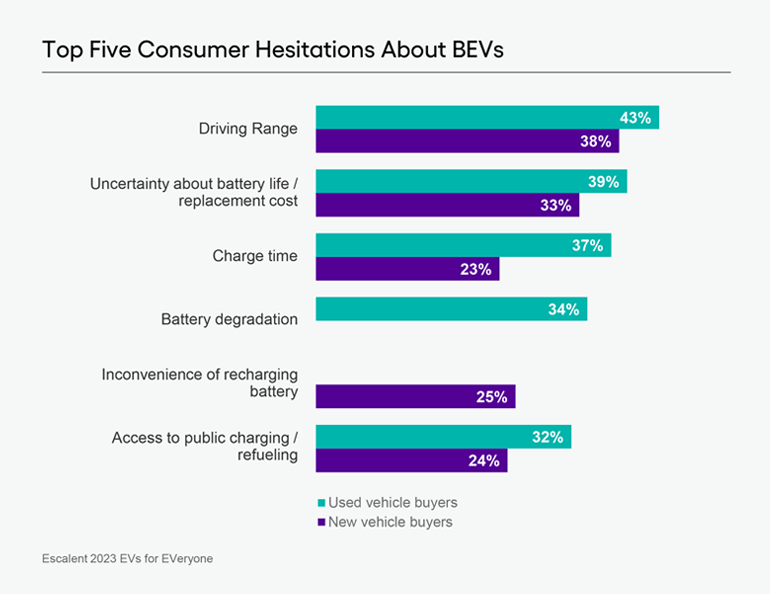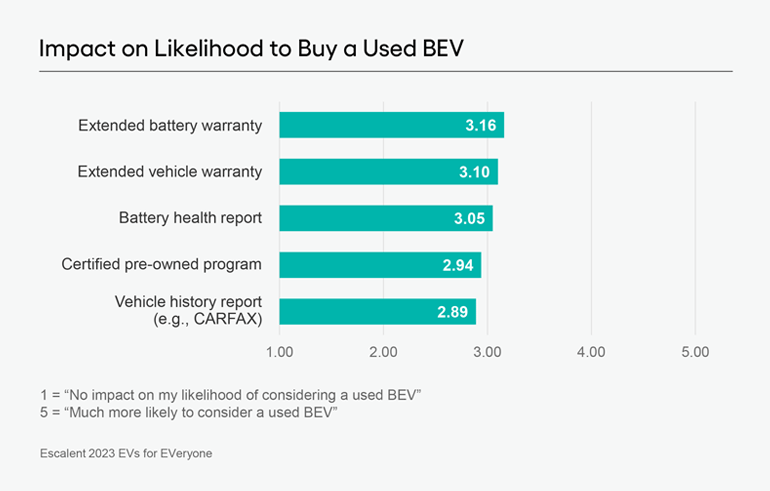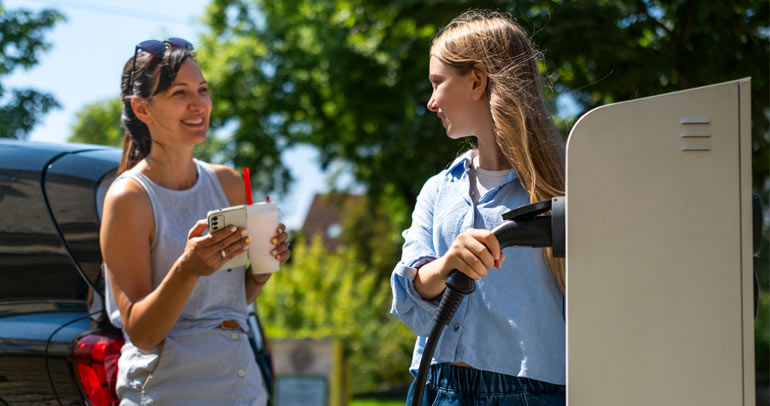
In the clean energy transition, there is a broad call for ensuring that the transition is done equitably, and the need for equity certainly extends to battery electric vehicles (BEVs). Federal electric vehicle policy has included equity components, such as a $4,000 tax credit for eligible used BEVs and clear statements about equity considerations in the National Electric Vehicle Infrastructure (NEVI) program to increase inclusion:
“Plans should be developed through engagement with rural, underserved, and disadvantaged communities to ensure that diverse views are heard and considered throughout the planning process, and to ensure that the deployment, installation, operation, and use of EV charging infrastructure achieves equitable and fair distribution of benefits and services.” — Federal Highway Administration NEVI guidance
However, consideration for equity and the impact of used BEVs extend beyond the federal government. Many utilities have centered equity in their BEV programs, led by municipal utilities seeking to support their local community’s equity goals. For example, municipally owned Los Angeles Department of Water and Power (LADWP) offers a $1,500 rebate on purchases of a used BEV, with an additional $1,000 available for low-income customers.
BEVs have clear benefits for populations negatively impacted by systemic inequities, including helping improve local air quality and reducing the cost of transportation for owners through lower “fueling” and maintenance costs. However, we know from our EVForward™ study on the next generation of EV buyers that there are notable barriers to purchasing a BEV for new car buyers. While it’s safe to assume that similar barriers are present for used BEV buyers, nobody has studied this challenge—until now.
Consumer Sentiment on Buying a Used BEV
Our new EVs for EVeryone report has found that 40% of consumers would consider a used vehicle the next time they shop for a car. Although the average new car currently sells for approximately $48,000, we have found that 82% of consumers expect to spend less than that amount and 43% of them are open to considering a used vehicle the next time they shop.
Among buyers considering a used vehicle, 18% are likely to consider a used BEV, with a further 26% on the fence about BEV consideration. However, used car buyers indicate that they find used BEVs a riskier proposition than used internal combustion engine vehicles—59% of used vehicle considerers and 36% of used BEV considerers think buying a used BEV is risky.
New and used vehicle buyers generally align on the most important attributes (purchase price, quality/reliability/durability, and safety) of and concerns about BEVs. However, used car buyers are a bit more concerned about charge time and access to public charging infrastructure—as well as battery degradation, which isn’t a concern about new BEVs.

In short, used car buyers are looking for assurances that a BEV will fit into their lives but also need to avoid getting into a situation where they’re forced into a financially untenable battery replacement down the road. Because of this, offering extended battery and vehicle warranties has the most significant positive impact on consumers considering a used BEV.

As a result, purchase incentives such as those offered by the federal government and some utilities are insufficient to get buyers into used BEVs. To provide sufficient purchase incentives, the federal government and utilities need to work with automakers and third-party insurers to guarantee that shoppers won’t be stuck with expensive battery repair and replacement bills if they buy a BEV.
Encouraging Used BEV Adoption to Aid the Clean Energy Transition
To foster an equitable clean energy transition and extend BEV adoption into customer groups that can’t afford a new vehicle, automakers and utilities need to consider how all consumers, including populations negatively impacted by systemic inequities, can feasibly adapt their lifestyle to a fully electrified vehicle. Although our findings show that barriers to adoption are similar for new and used BEVs, there are different, important implications for these populations that BEV industry stakeholders need to address for greater impact.
Escalent is at the forefront of helping our clients understand underrepresented audiences. We’ve used that expertise to create our EVs for EVeryone report, profiling used BEV buyers’ needs, motivations and challenges and providing insights into multifamily charging needs. That report is available now—click below to learn more.
About the EVs for EVeryone Study
Escalent interviewed a national sample of 15,553 consumers age 18 to 99 between June 23 and August 24, 2023. Respondents were recruited from multiple opt-in online panels of US adults and were interviewed online. The data were weighted by age, gender, race and household income to match the demographics of the US adult population. Any reported margins of error or significance tests are estimated and rely on the same statistical assumptions as data collected from a random probability sample. Escalent will supply the exact wording of any survey question upon request.









